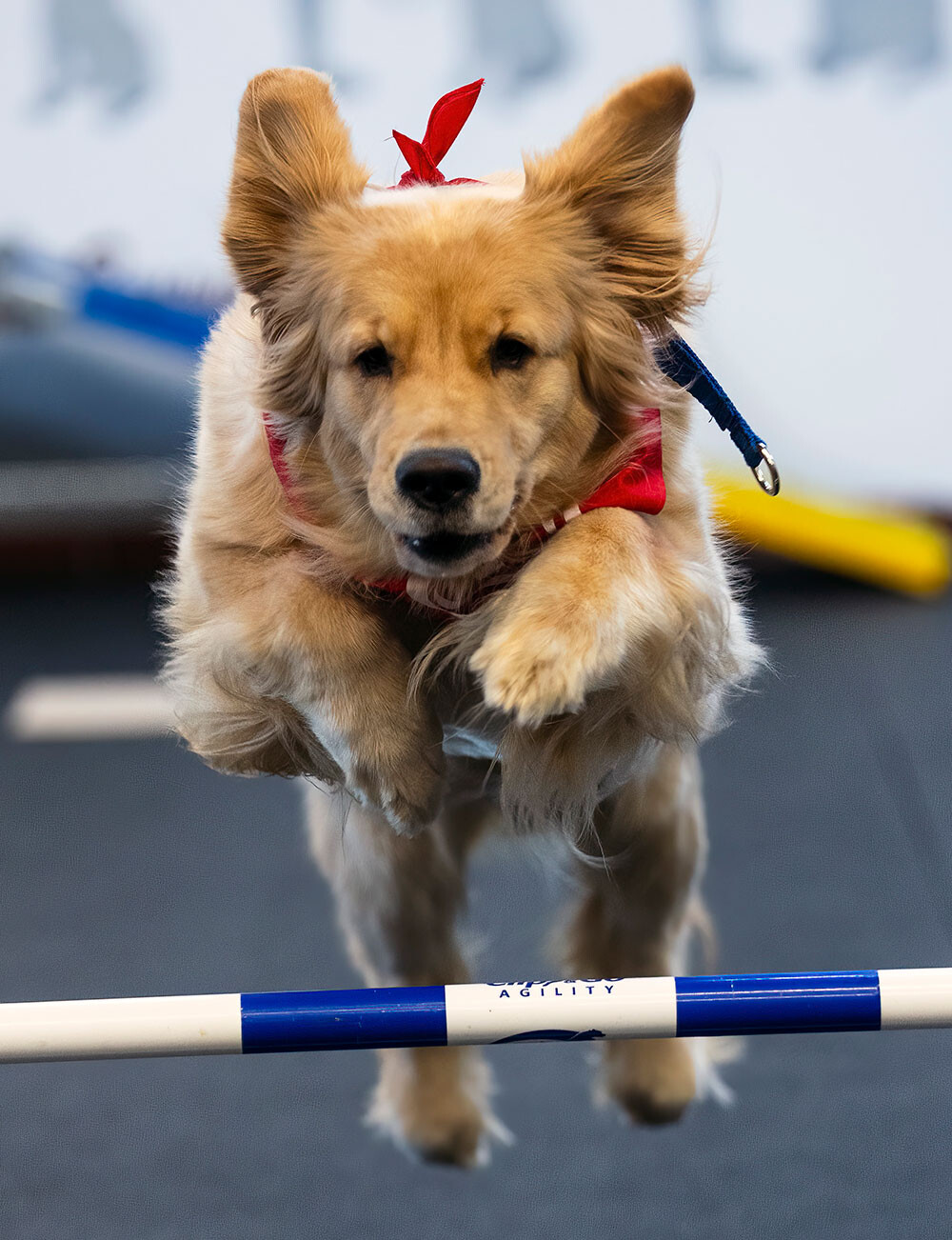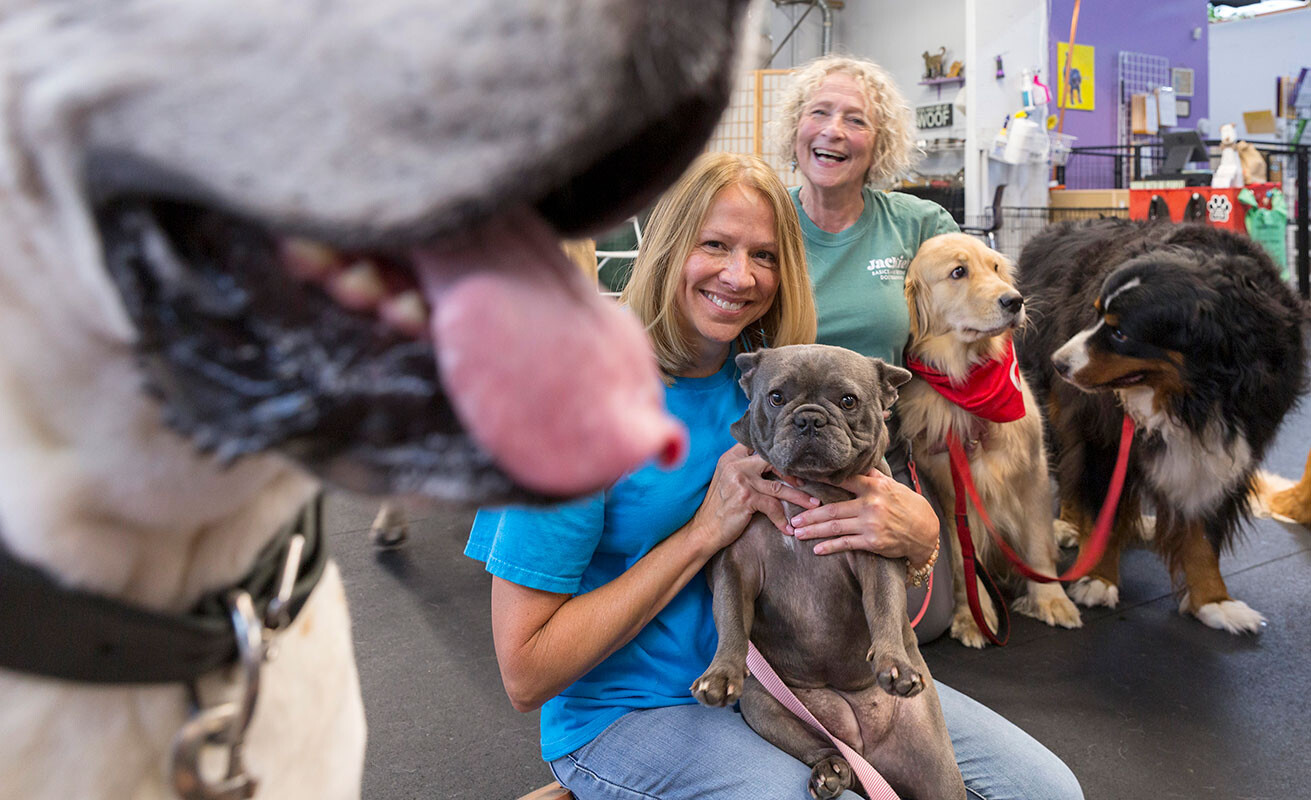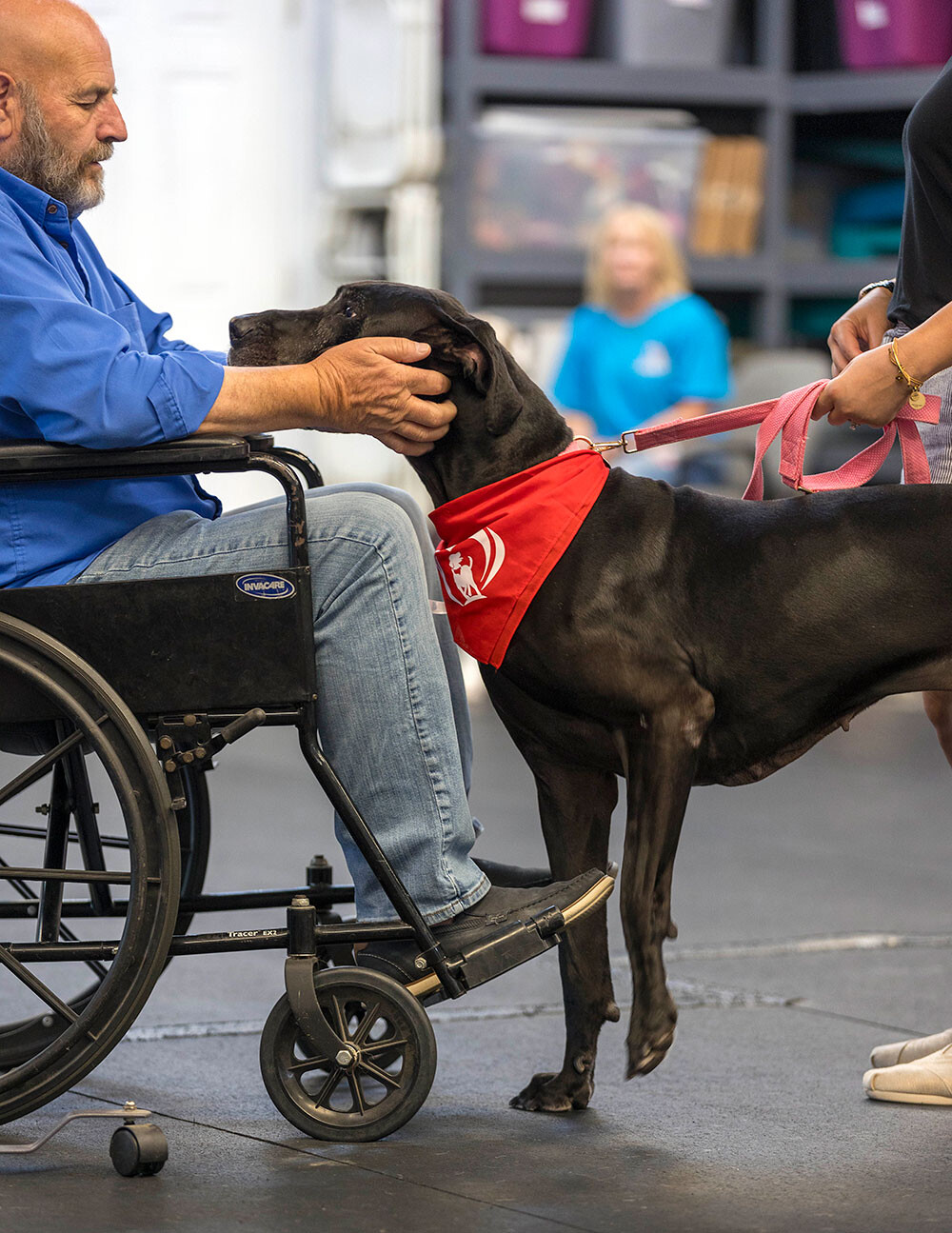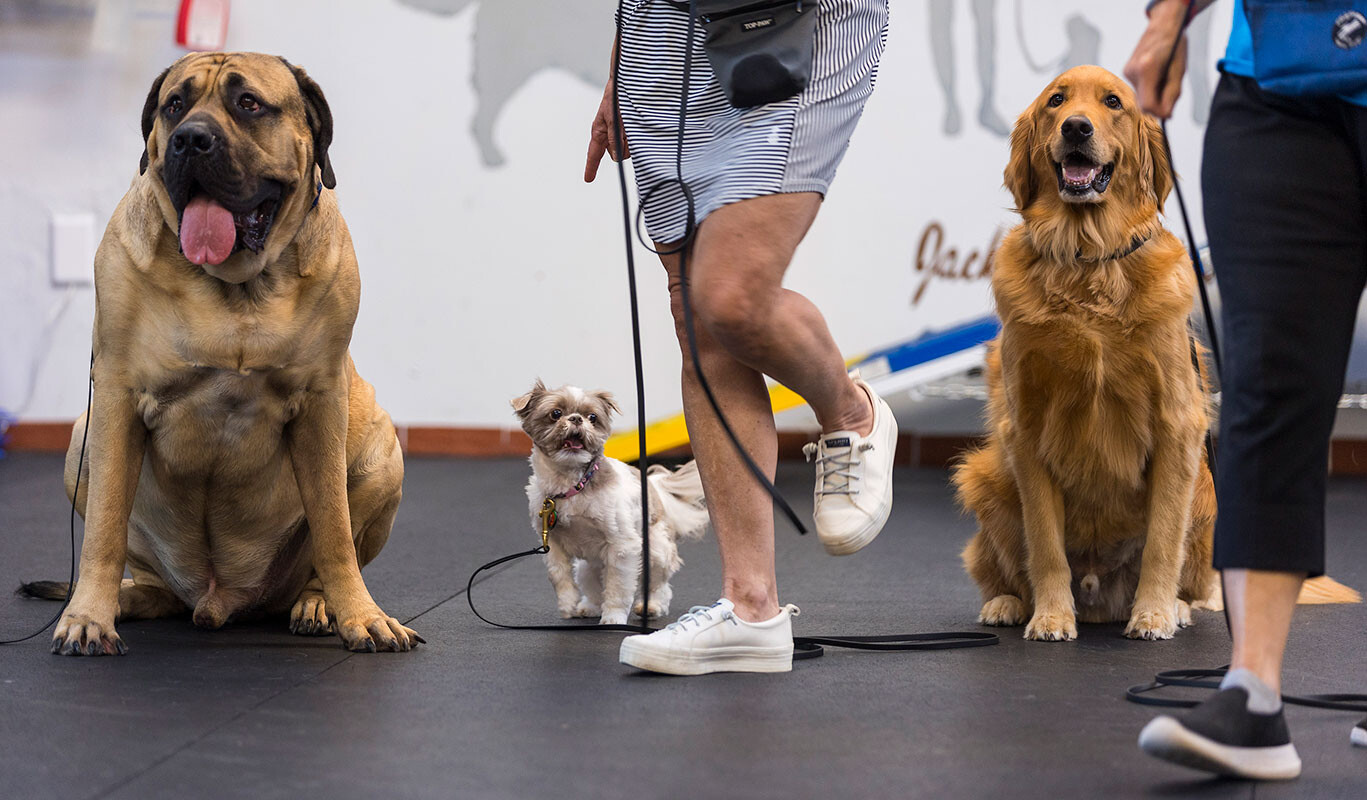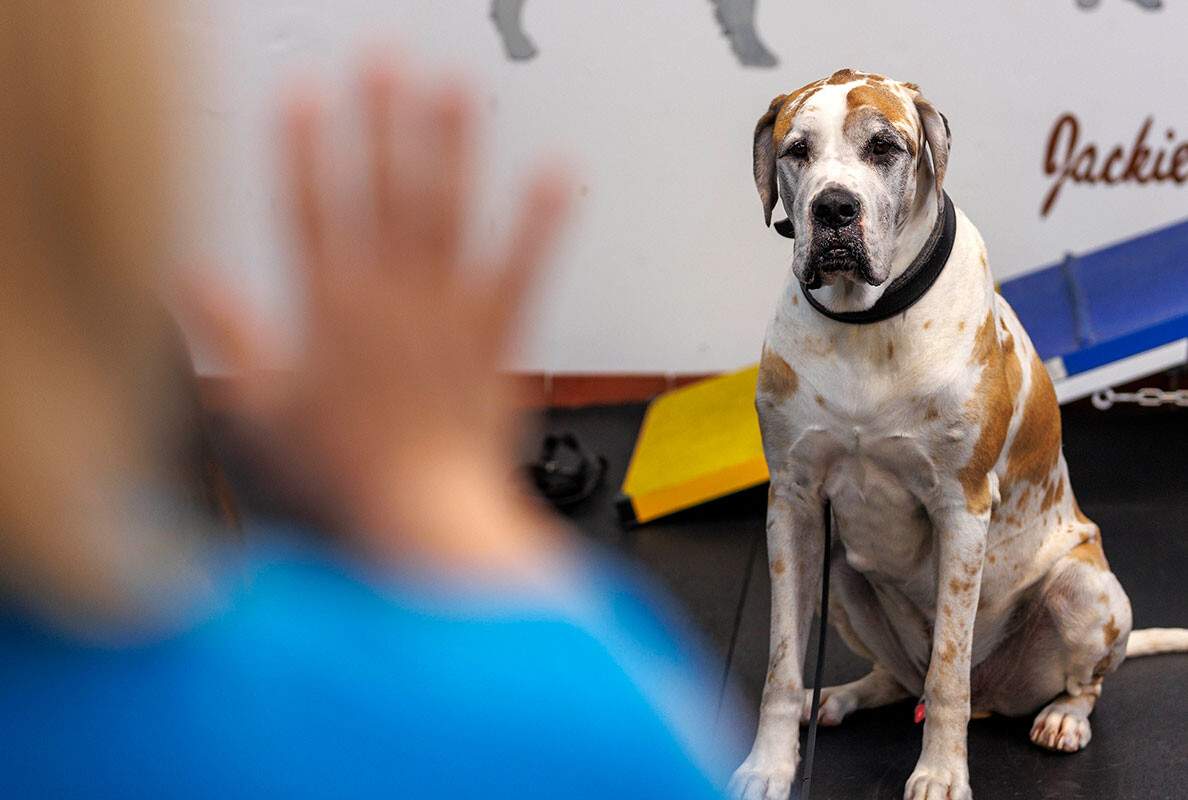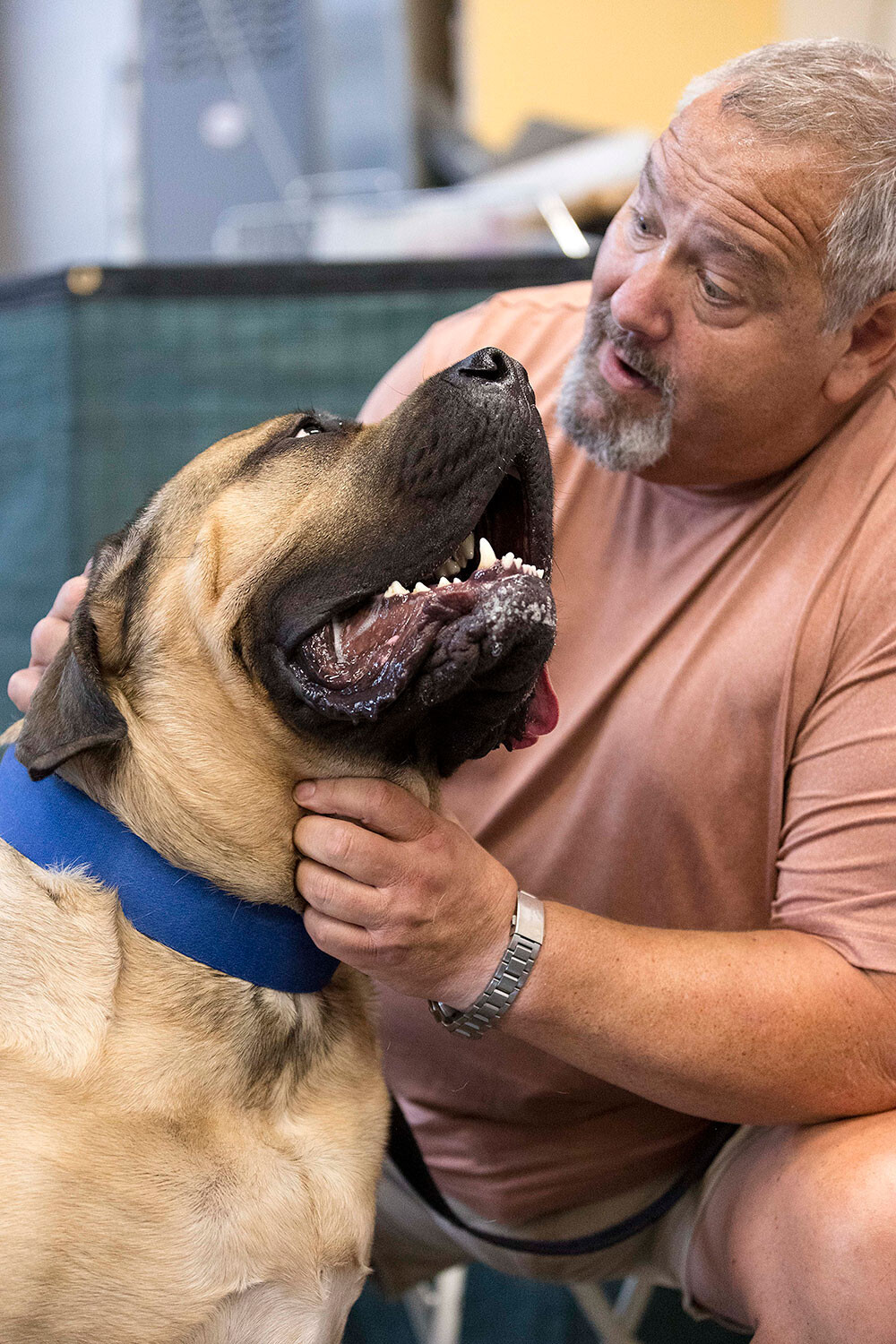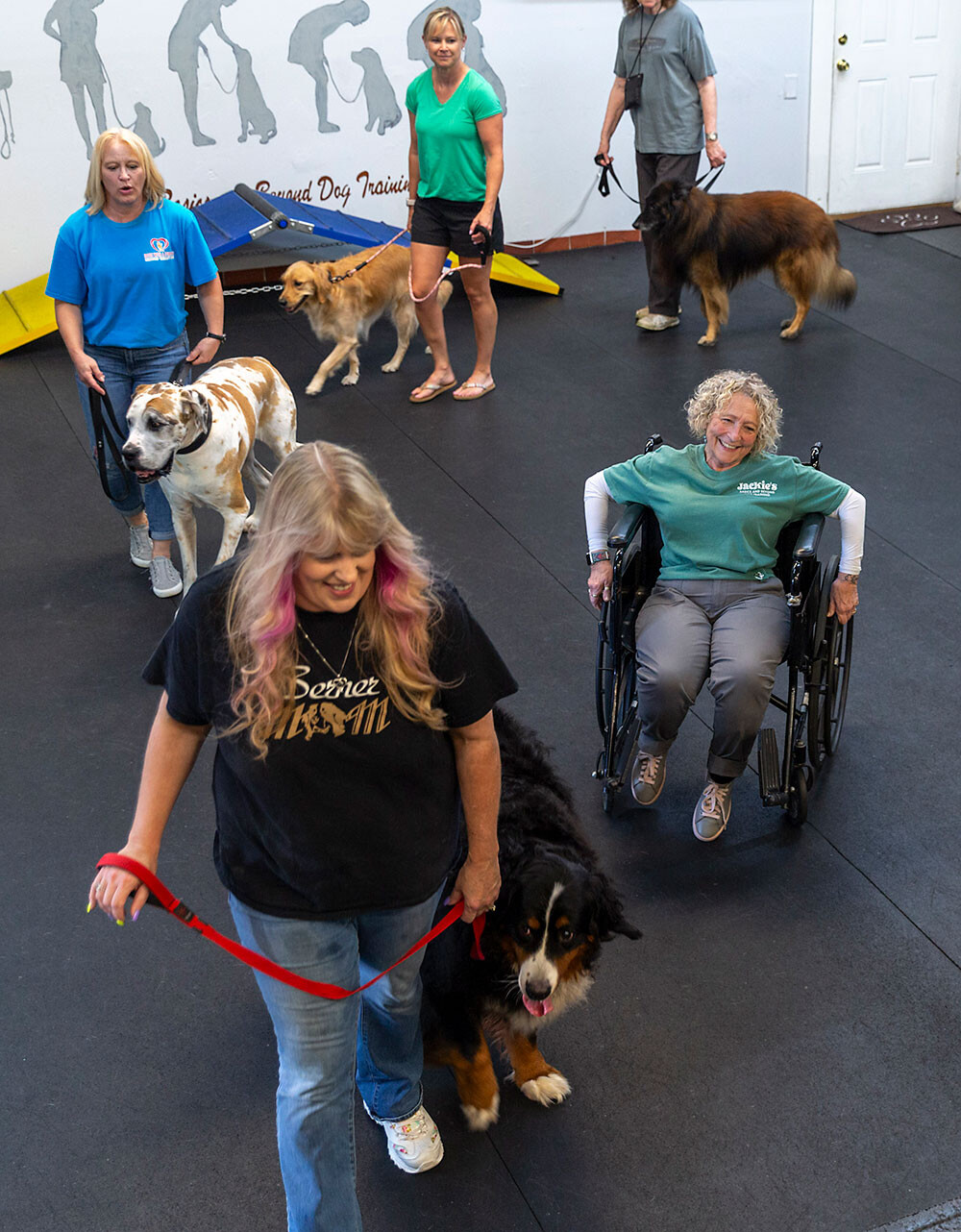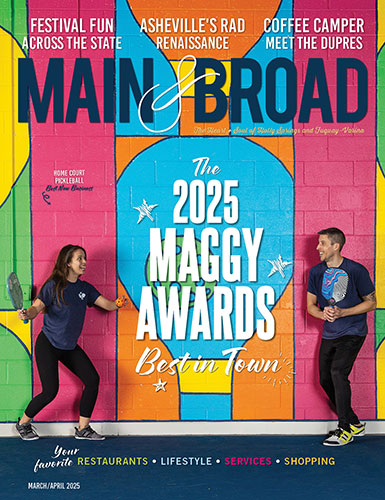You and your dog walk into a room, and sitting center stage is half of a Big Mac, a pile of toys, and an open jar of peanut butter. What does your dog do? Mine would probably go for the meat first, followed by the peanut butter for dessert. He would then grab a toy for a quick game of fetch consisting of him running, me chasing, and not much retrieving. This behavior does not make my dog bad, just typical. A certified therapy dog, on the other hand, would be able to simply walk past these temptations without a second glance. These exceptional canines are trained this way to allow them to visit different facilities, providing their unique services to those needing a little extra support and companionship.
Certified paw-some!
All therapy dogs must pass the Certified Therapy Dog Test to become certified. This assessment consists of a set of skill tests designed to demonstrate the obedience of the dog and how well the owner and dog work together as a team. Many of these tests are designed to recreate real-world situations a team might encounter on the job.
Dogs with a Purpose has an immediate need for therapy dogs. Contact them if you would like to learn more about their programs.
Dogs with a Purpose, a nonprofit organization in Cary, offers not only the Certified Therapy Dog Test, but also a practice and pre-test, prior to the certification. They pride themselves on going above and beyond to ensure the happiness, safety, and success of their therapy teams.
All teams are evaluated upon arrival at the testing facility — including the seemingly simple task of getting out of the car and to the front door.
During testing, dogs are assessed on how they enter a space and how they settle down in various situations. They are not allowed to approach another person until the owner says “look at me” followed by “go say hi.” The “leave it” command is especially important to protect both the people being visited and the dogs serving. All therapy dogs must be completely desensitized to things like wheelchairs, walkers, IV poles, crutches, loud noises, large groups, other dogs, or even a table full of food.
It is key that owners are willing to fully commit to the therapy team lifestyle — and it is truly a lifestyle that must remain consistent both outside and inside the home. “You have to have a passion for it,” said Karen Callaghan, director of operations of Dogs with a Purpose. For her, volunteering is worth the price. “You have to feed your soul,” she said.
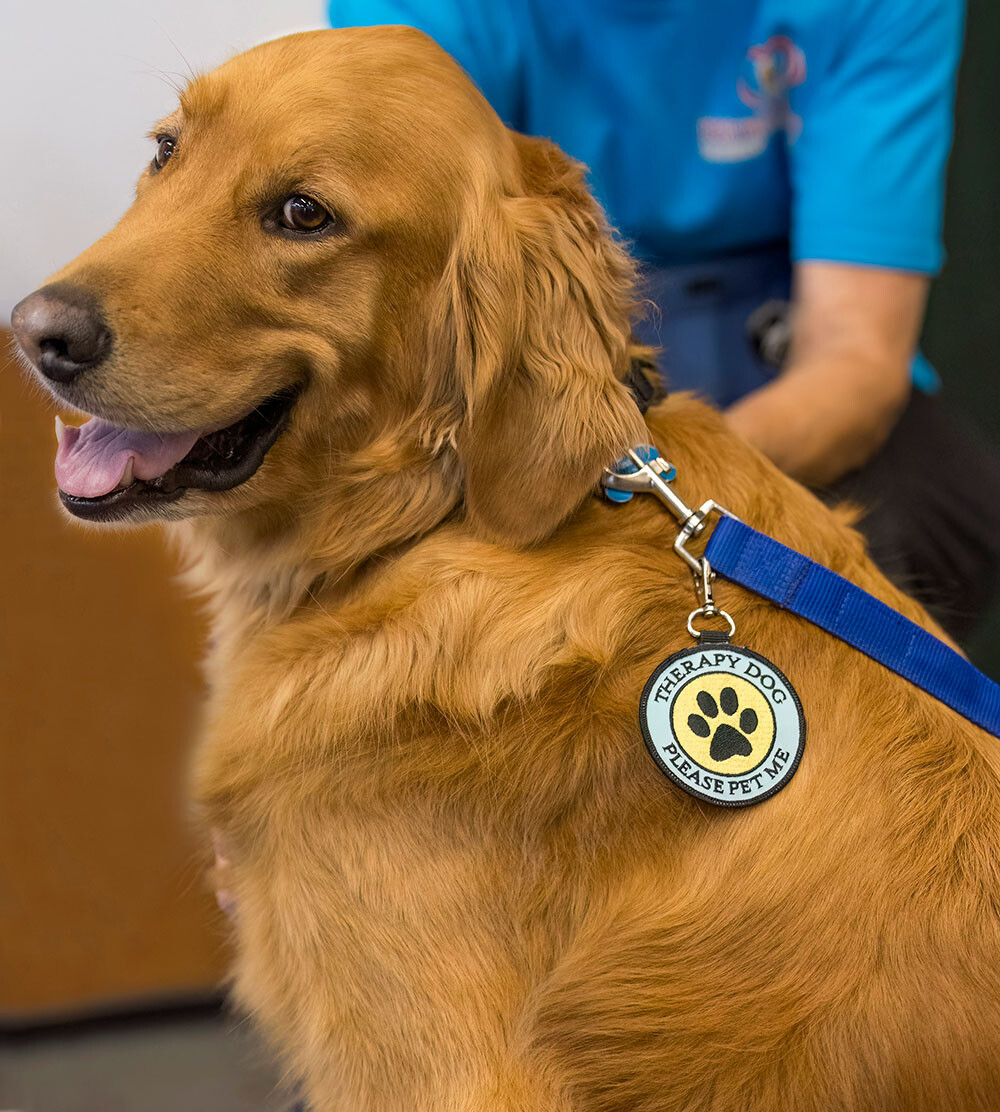
Jackie’s Basics and Beyond Training
230 E. Johnson St., Cary
jackiesbasicsandbeyond.com
(919) 488-1446
Dogs with a Purpose
230 E. Johnson St., Cary
dogswithapurpose.com
(919) 810-1247
Temperament is paws-itively paramount
So, can any dog become a therapy pup? “It all comes down to temperament,” said Jackie Kelly, owner of Jackie’s Basics and Beyond Training and founder of Dogs with a Purpose. “If a dog has the right temperament, they can be trained to do just about anything.” From tiny Yorkies to giant Great Danes, rescue or purebred, even three-legged or one-eyed dogs — they all have the capacity to become therapy dogs.
An ideal therapy pooch should be friendly, engaged, gentle, affectionate, calm, and enjoy being touched. In addition to an even temperament, dogs must be otherwise healthy and at least one year old to be eligible for certification.
Therapy teams work with hospitals, assisted and independent living facilities, schools for students of all ages, special needs facilities, homeless shelters, funeral homes, and anywhere else their support is needed. Their services benefit military members, veterans, first responders, and beyond.
Dogs with a Purpose works especially hard to match therapy teams with groups that will have a shared bond. For example, a recent recruit is a three-legged dog undergoing training with the goal of visiting veterans at local VA hospitals. Another dog with an underdeveloped cerebellum visits patients with traumatic brain injuries. Matching disabilities helps create an instant connection between human and dog that many patients may struggle to find with other people.
Man’s best friend
The mere sight of a wagging tail can instantly lift spirits and create a sense of calm and comfort. There is not a more comforting shoulder to cry on or sympathetic ear than that of man’s best friend.
- Liquid Assets: Monk’s Mär “Zen”
- Pets on Parade 2023
- Liquid Assets: The Eleventh Hour
- Restaurant Spotlight: Urban Angeethi
- Asali’s Pumpkin Cheesecake Mousse
- Worth the Drive: Lexington
- Nonprofit Spotlight: Cat Angels Pet Adoptions
- Unleashing Comfort
- On Trend: Curated Living
- Garden Adventurer: Tulips! Don’t Fear the Deer!
- Small Business Spotlight: Werking Design & Décor
- Growing Community and Good Vibes
- Ready, Set, Glow
- Erica Chats: Your NC Fall Bucket List
- Things to Do: October 2023



